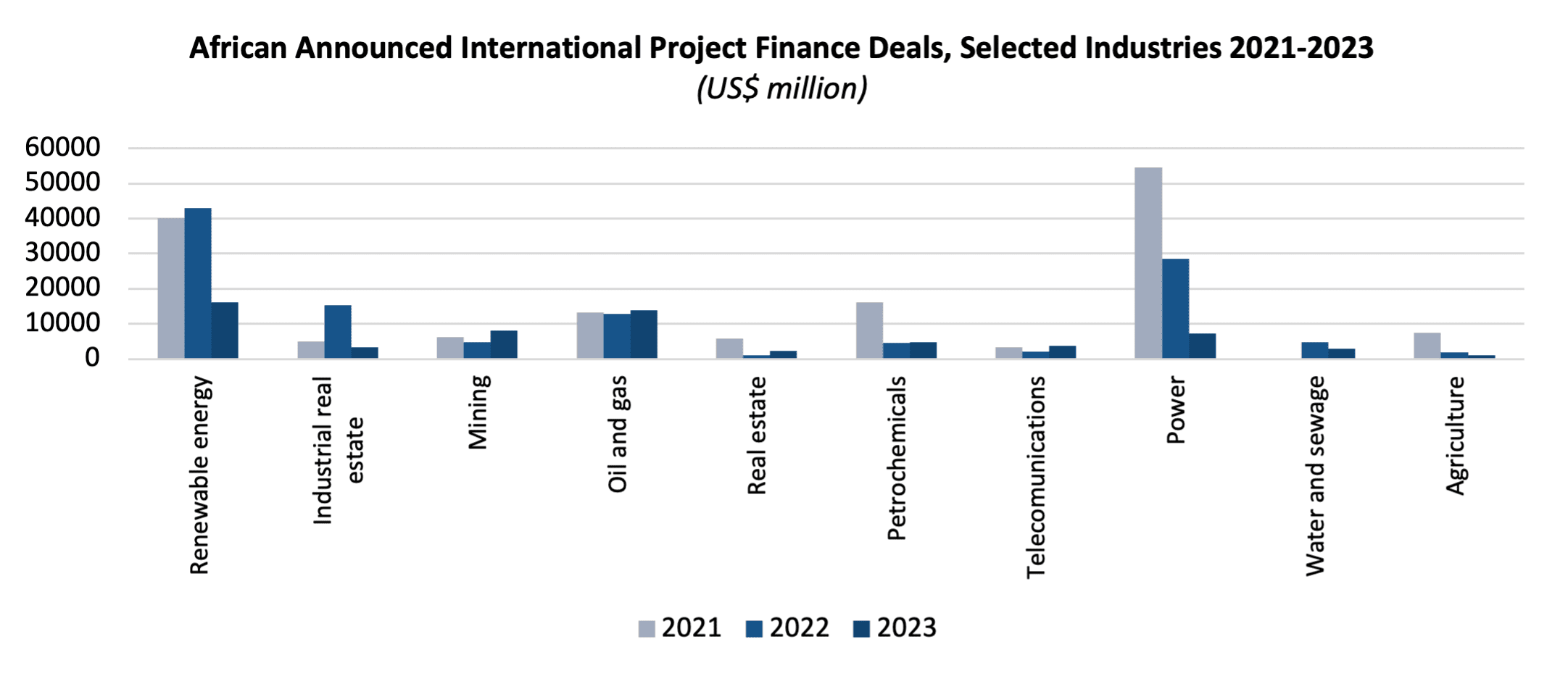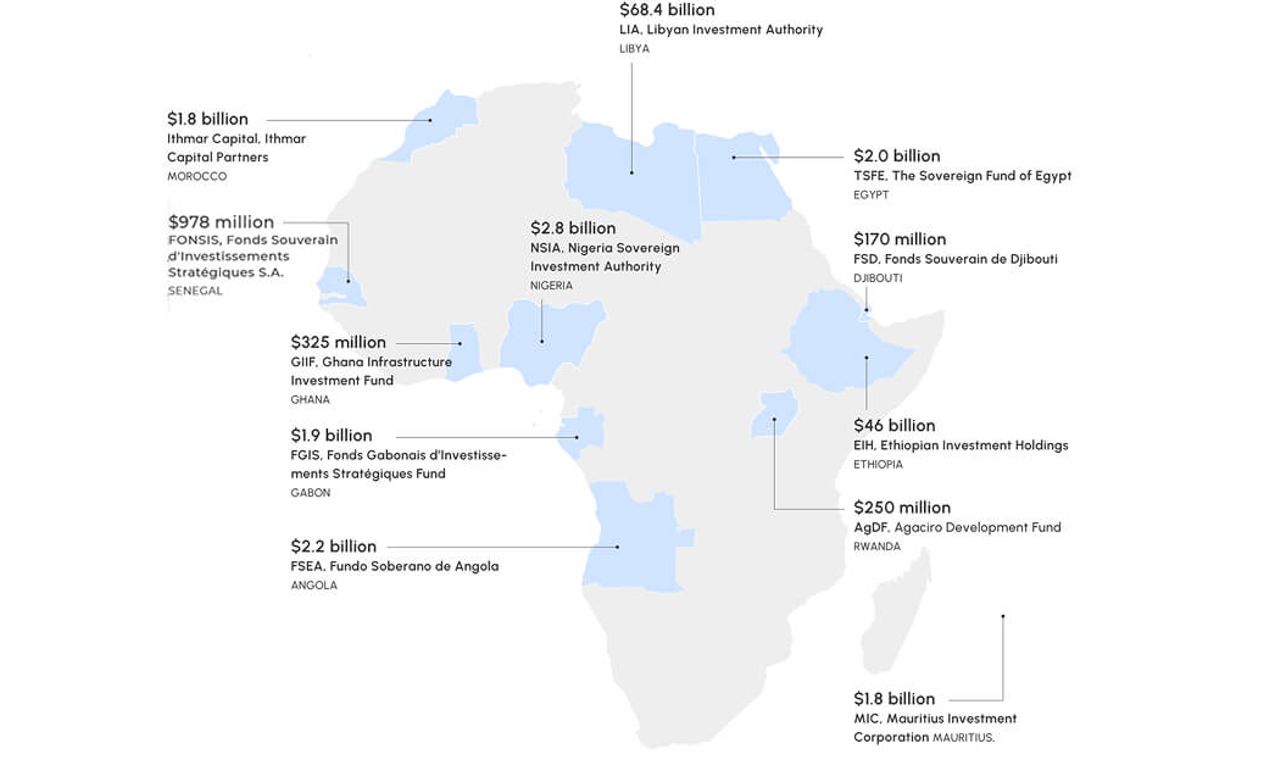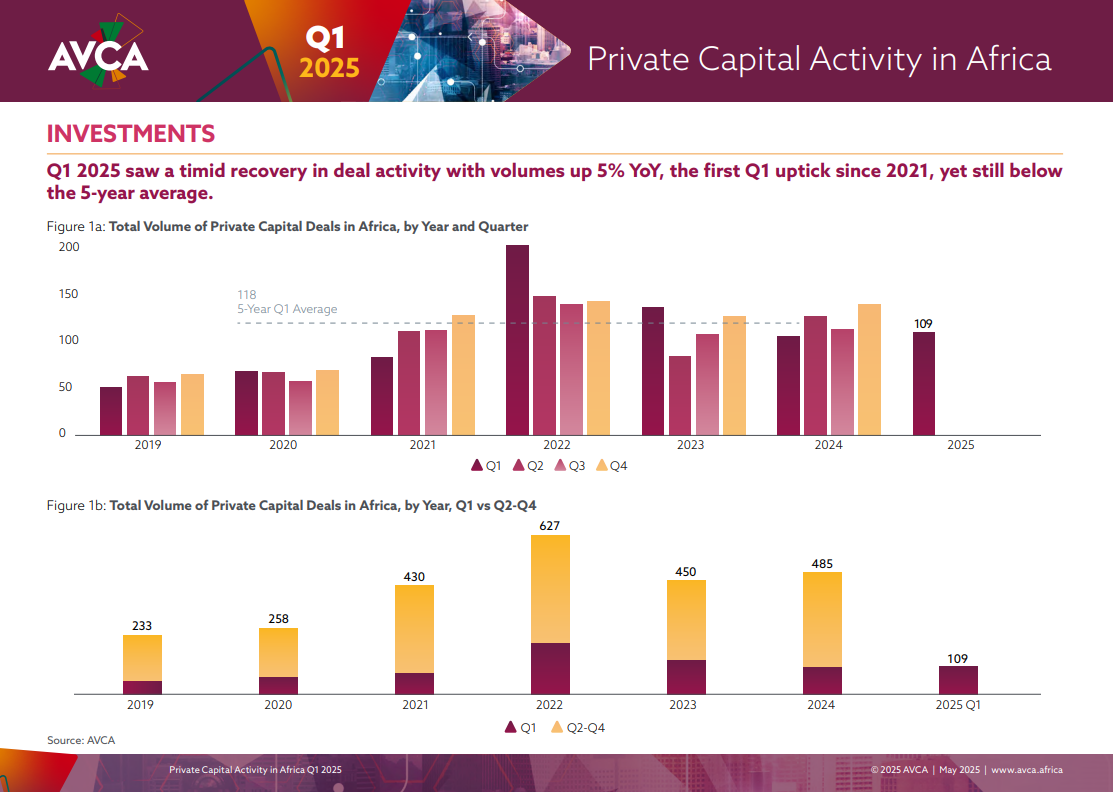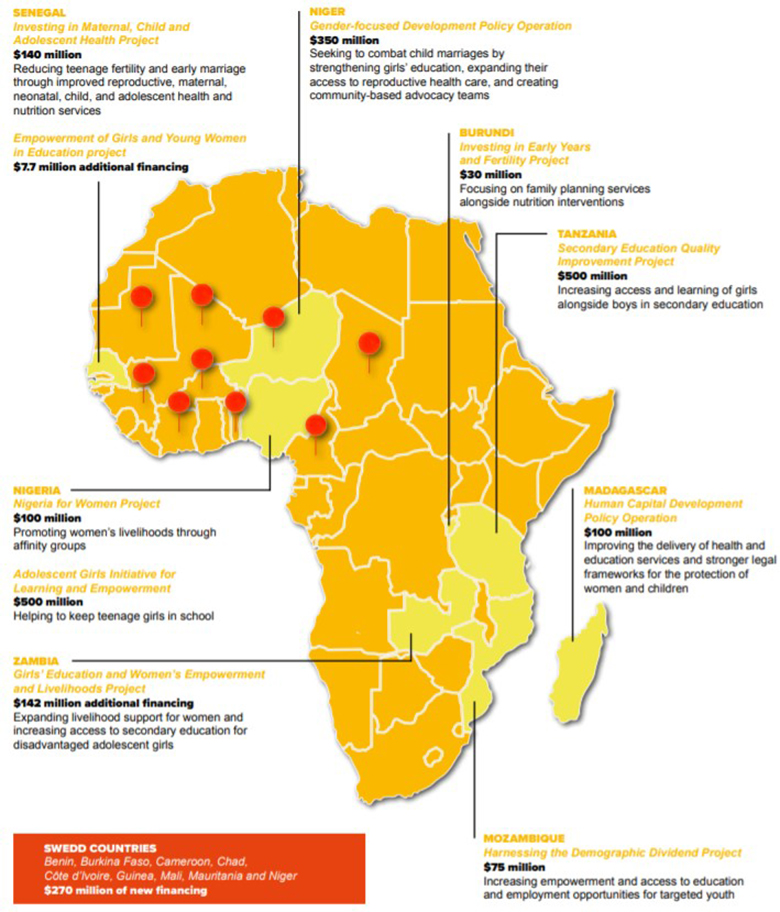In Summary
- Overall, Africa’s impact investing market in 2025 is valued at over US $11 billion, reflecting a shift from frontier perception to a mainstream sustainable finance destination.
- Kenya leads Africa with 136 impact capital vehicles and approximately $240 million in committed capital, accounting for nearly half of East Africa’s impact investment activity.
- Uganda ranks 2nd with 119 impact vehicles and approximately $54 million committed, showing strong momentum in social and environmental investment.
- South Africa & Nigeria dominate continental deal flows, leveraging their financial depth and large consumer bases to attract funds in fintech, agriculture, housing, and renewable energy.
- Rwanda, Ghana, and Egypt are rising hubs, benefiting from reforms, strong startup ecosystems, and SDG-aligned industrial initiatives, drawing increasing regional and global fund attention.
Deep Dive!!
Impact investing has rapidly evolved from a niche concept into a transformative force across Africa, channeling capital toward ventures that deliver both measurable social outcomes and competitive financial returns. In 2025, the continent’s impact investment market is estimated to be worth over US $11 billion, with East Africa and Southern Africa leading in deal volumes and fund concentration. According to the Global Impact Investing Network (GIIN) and regional data from Zeri Capital and ImpactKE, Africa has witnessed a steady rise in impact-dedicated funds, driven by growing demand for sustainable solutions in energy, healthcare, agriculture, education, and digital inclusion. Unlike traditional capital flows, impact funds are designed to address systemic challenges, ranging from unemployment and inequality to climate resilience, while delivering risk-adjusted returns that continue to appeal to institutional and mission-driven investors.
The surge of capital reflects both structural shifts and investor confidence. Africa’s youthful demographics, rapid urbanization, and digital adoption present fertile ground for scalable social enterprises, while reforms in business regulation and capital markets have encouraged greater participation from local and international fund managers. Countries like Kenya and Uganda dominate in East Africa, accounting for over US $290 million in committed impact capital between them, while South Africa and Nigeria have emerged as continental heavyweights with deep financial ecosystems and high-growth sectors like fintech, agritech, and renewable energy. Meanwhile, reform-minded economies such as Rwanda, Ghana, and Egypt are gaining traction, positioning themselves as rising hubs for sustainable finance.
This article ranks the Top 10 African Countries with the Most Impact Investment Funds in 2025, highlighting where investor appetite is strongest and why. The ranking draws on data from GIIN, Zeri Capital, Number Analytics, and Anzisha, reflecting both the depth of fund vehicles and the scale of capital under management. Beyond the numbers, it captures how each market is building its impact ecosystem, from policy frameworks to entrepreneurial resilience. Together, these countries showcase Africa’s potential to not only absorb but also multiply the value of impact-driven capital, proving that the continent is no longer just an emerging frontier but a central stage for the future of global sustainable investing.

10. Senegal
Senegal has steadily gained visibility as an emerging destination for impact investors in West Africa, driven by its economic stability and a growing focus on sustainable development. According to the Global Impact Investing Network (GIIN) and the Global Steering Group for Impact Investment (GSG), Senegal is part of the group of African economies attracting early impact capital interest. With a GDP growth rate averaging 5% in recent years, Senegal’s government has been prioritizing renewable energy, infrastructure modernization, and agricultural transformation under its Plan Sénégal Émergent (PSE), creating strong entry points for impact-focused funds. These initiatives have made the country particularly attractive to investors seeking scalable projects in clean energy and agro-value chains.
The country’s energy transition efforts have positioned it at the forefront of green investment in the subregion. Senegal was one of the first African states to close coal-to-clean power financing agreements, supported by international development finance institutions and climate funds. The solar and wind energy sectors, in particular, have drawn global investors who see Senegal as a testbed for replicable renewable energy models across francophone Africa. Coupled with a vibrant entrepreneurial scene in Dakar, spanning agritech, digital inclusion, and health-tech startups, Senegal has become an increasingly important market for venture-driven impact vehicles looking for both financial return and measurable social value.
However, Senegal’s impact investment ecosystem remains at an early stage, compared to hubs like Kenya or South Africa. The regulatory environment is improving, but the country still faces challenges around investor protection, scale-up financing, and limited exit options for private equity-style investments. Despite these hurdles, Senegal’s inclusion in the GIIN/GSG monitoring framework underscores its potential as a frontier market for impact capital. For investors seeking to balance risk with high-growth, socially aligned opportunities, Senegal is fast becoming a “go-to” allocation within West Africa’s impact portfolio, especially as demand for sustainable finance expands across the region.
9. Côte d’Ivoire
Côte d’Ivoire has become one of West Africa’s fastest-growing economies, with average GDP growth of around 6–7% annually in the past decade, making it a natural focal point for impact investors. According to the GIIN/GSG reports, the country is included among the top ten African nations being actively monitored for impact investment potential. Much of this interest is tied to its ambitious economic reforms under the National Development Plan (PND 2021–2025), which prioritizes agricultural transformation, industrialization, and infrastructure development. These reforms are designed not only to sustain high growth but also to expand financial inclusion, rural development, and social equity, fitting neatly within the mandate of impact-driven capital.
Agriculture remains central to Côte d’Ivoire’s impact investing story, given its status as the world’s largest cocoa producer and a major exporter of cashew, coffee, and palm oil. While global price volatility creates risks, it also underscores opportunities for investment in value addition, farmer cooperatives, and sustainable supply chains. In recent years, investors have supported projects around fair-trade cocoa, renewable energy for rural processing plants, and fintech solutions for farmer financing. At the same time, urban centers like Abidjan are becoming hubs for tech-enabled startups in logistics, education, and digital health, sectors increasingly attracting impact capital due to their social multiplier effects.
That said, Côte d’Ivoire’s impact investing environment still faces structural challenges. Political risk, though more contained since the 2011 crisis, remains a factor that investors weigh heavily. Moreover, the country’s regulatory framework for blended finance and private equity-type investments is less developed than in Kenya or South Africa. Yet, the progress made under reforms and its growing recognition by GIIN and GSG reflect a clear trajectory toward becoming a serious West African destination for impact funds. For investors seeking diversification, particularly those with a long-term horizon and appetite for frontier markets, Côte d’Ivoire offers both scale and the promise of aligning strong returns with meaningful social and environmental outcomes.

8. Tunisia
Tunisia is steadily positioning itself as a rising hub for impact investing in North Africa, supported by its vibrant startup ecosystem and strong youth-driven innovation culture. With over 60% of its population under the age of 35, the country has seen a surge in entrepreneurial activity, particularly in tech-enabled services, renewable energy, and social enterprises. According to Anzisha and regional venture capital trackers, Tunisia’s ecosystem is drawing attention from both regional and international impact funds, as investors look to tap into ventures that combine financial returns with measurable social and environmental outcomes. The government has also played a role by supporting entrepreneurship through initiatives like Startup Act, which provides tax breaks, funding support, and international exposure for early-stage businesses.
Sectors such as education technology, agritech, and clean energy are emerging as magnets for impact capital in Tunisia. For instance, agritech startups are leveraging digital tools to improve smallholder farmer yields and access to markets, while renewable energy projects are being aligned with Tunisia’s broader ambition to increase the share of renewables in its energy mix to 30% by 2030. Similarly, healthcare and education ventures have also attracted attention, particularly those targeting underserved communities or bridging urban-rural service gaps. International development finance institutions (DFIs) and regional venture capital firms have begun actively scanning Tunisia for scalable opportunities, viewing it as a testing ground for innovative models that could expand across North and Sub-Saharan Africa.
However, Tunisia’s impact investing landscape is not without challenges. Macroeconomic instability, including rising inflation and fiscal constraints, has sometimes tempered investor confidence. Political uncertainty since the 2011 revolution has also created periods of volatility, though the resilience of the entrepreneurial sector continues to signal long-term potential. For global impact funds, Tunisia offers a unique proposition: a relatively small but dynamic market with a growing pipeline of high-impact startups, policy support for social enterprises, and strong human capital. This combination positions Tunisia as an emerging yet promising destination for impact investing in Africa’s broader sustainable development journey.
7. Ghana
Ghana has steadily emerged as one of West Africa’s most promising impact investment destinations, underpinned by its stable macroeconomic environment, supportive regulatory framework, and growing entrepreneurial ecosystem. The country’s fintech sector, in particular, has drawn significant attention from impact investors, as digital financial solutions expand financial inclusion for underserved populations. Ghana hosts a growing number of impact-focused ventures that target social and environmental challenges, ranging from affordable healthcare solutions to sustainable agribusiness models, creating measurable social impact while offering attractive risk-adjusted returns.
The agricultural sector remains a cornerstone for impact investment in Ghana, where smallholder farmers make up the majority of the population. Innovative agritech startups are leveraging digital platforms, mobile payment solutions, and climate-smart farming techniques to improve productivity and market access. Similarly, healthcare ventures, spanning telemedicine, community clinics, and health insurance solutions, are scaling to meet the demands of urban and rural communities alike. Ghana’s youthful population, high mobile penetration rates, and increasing access to education provide fertile ground for startups that aim to deliver both social value and financial returns, making it an increasingly attractive target for regional and international impact funds.
While Ghana has made significant strides, challenges remain in terms of policy implementation, access to early-stage capital, and infrastructure gaps. Despite these hurdles, the government and private sector have actively promoted entrepreneurship and social enterprise development through initiatives such as the Ghana Investment Fund for Entrepreneurs (GIFE) and public-private partnerships aimed at supporting startups in high-impact sectors. As a result, Ghana has positioned itself as a growing hub for impact investment in West Africa, offering investors a combination of promising opportunities, policy support, and a strong pipeline of impact-driven enterprises capable of scaling across the region.

6. Egypt
Egypt has become a prominent player in the African impact investment landscape, largely due to its strategic position, large domestic market, and active pursuit of Sustainable Development Goals (SDGs). The country’s focus on industrial expansion, renewable energy, and social inclusion has created fertile ground for impact investors seeking measurable social and environmental returns. According to Anzisha, Egypt’s market is attracting regional and international funds targeting sectors such as affordable housing, renewable energy, education, and healthcare, signaling growing investor confidence in the country’s policy environment and economic growth trajectory.
A key driver of Egypt’s impact investment appeal is its industrial and social inclusion initiatives, which aim to integrate marginalized populations into economic activity while fostering sustainable development. Programs supporting SMEs, women-led businesses, and youth entrepreneurship have created pipelines for high-impact projects, particularly in urban and peri-urban areas. Renewable energy initiatives, such as solar and wind projects in the Sinai Peninsula and Aswan, are receiving significant capital inflows from international impact funds, further highlighting Egypt’s role as a regional hub for SDG-aligned investments.
Despite being a high-potential market, Egypt presents certain challenges, including regulatory complexities, currency volatility, and political considerations. However, the government’s continued reforms, growing transparency, and structured public-private partnerships have strengthened investor confidence, enabling Egypt to attract a mix of early-stage and growth-stage impact capital. As a result, the country is increasingly seen as a strategic destination for investors seeking both social impact and competitive returns, positioning it among the top African nations for impact-driven investment in 2025.
5. Rwanda
Rwanda has emerged as a standout destination for impact investment in East Africa, largely due to its robust regulatory environment, ease of doing business, and forward-looking economic policies. With a fast-growing economy averaging around 7–8% GDP growth in recent years, the country offers investors a stable platform for sustainable ventures. According to Zericapital.com, Rwanda accounts for approximately $44 million in committed impact capital, reflecting the growing confidence of regional and international funds in its development trajectory. Sectors such as agribusiness, renewable energy, fintech, and healthcare have been particularly attractive to investors seeking measurable social and environmental returns.
A significant driver of Rwanda’s appeal is its government-led focus on innovation and entrepreneurship. Programs supporting SMEs, youth-led startups, and women entrepreneurs have created a robust pipeline for impact-oriented projects. The country’s investments in digital infrastructure and smart agriculture, combined with favorable tax policies and streamlined business registration processes, have strengthened Rwanda’s reputation as a high-potential market for impact funds. Furthermore, Rwanda’s commitment to sustainable development aligns well with global ESG and SDG-focused investment mandates, making it a natural choice for impact-oriented capital.
Despite its relatively small market size compared to regional giants like Kenya or South Africa, Rwanda’s strategic positioning, transparent governance, and high-quality project pipeline offer investors unique opportunities for both social impact and financial returns. International and regional funds increasingly view Rwanda as a “model” for African impact investing, combining manageable risk with measurable development outcomes. As the country continues to attract attention from impact investors, it is poised to solidify its role as a leading East African hub for sustainable investment by 2025.

4. Nigeria
Nigeria stands out as a major hub for impact investment in Africa, leveraging its position as the continent’s most populous nation with over 220 million people. The sheer size of its domestic market offers unparalleled scale for ventures targeting financial inclusion, healthcare, renewable energy, and sustainable agriculture. The country has attracted substantial impact capital, particularly in fintech solutions that enhance access to financial services, agribusiness projects improving productivity and food security, and renewable energy initiatives that address power deficits while supporting environmental goals. The combination of market size and sectoral diversity makes Nigeria a high-potential destination for investors seeking both social impact and financial returns.
A key factor driving Nigeria’s appeal is its vibrant entrepreneurial and innovation ecosystem, supported by incubators, accelerators, and government programs aimed at fostering inclusive growth. Cities like Lagos, Abuja, and Port Harcourt have become epicenters for technology-driven solutions, drawing interest from regional and international impact funds. Investment in digital finance, mobile payments, and climate-smart agritech has grown rapidly, reflecting both Nigeria’s scale and its capacity for innovation. Moreover, regulatory reforms aimed at improving the business environment, enhancing transparency, and incentivizing impact-driven initiatives have strengthened investor confidence in the market.
Despite challenges such as infrastructure gaps, policy inconsistencies, and currency volatility, Nigeria’s strategic importance and long-term growth potential make it an attractive destination for impact investors. Its combination of a large consumer base, innovative startups, and pressing social and environmental needs creates opportunities for high-impact ventures that can deliver measurable outcomes. As a result, Nigeria continues to consolidate its position as one of Africa’s leading impact investment markets, attracting both domestic and international capital seeking sustainable development impact.
3. South Africa
South Africa continues to be a critical hub for impact investing in Africa, leveraging its advanced financial infrastructure, well-established capital markets, and a strong regulatory framework. Although precise figures for committed impact capital are not readily cited, the country’s mature economy and sophisticated investor base make it a gateway for both domestic and international impact funds seeking exposure to sub-Saharan Africa. Key sectors attracting capital include sustainable agriculture, where investors fund climate-resilient farming and food security projects, affordable housing, which addresses urbanization pressures, and digital inclusion, supporting technology solutions that bridge socio-economic gaps.
A central factor contributing to South Africa’s appeal is its robust ecosystem of financial institutions, development finance organizations, and private equity players focused on socially responsible investments. Johannesburg and Cape Town serve as regional centers for impact investment networks, facilitating deal flow and collaboration between investors and social enterprises. The country’s strong reporting standards, corporate governance norms, and transparent legal frameworks enhance investor confidence, allowing impact funds to deploy capital efficiently while measuring social and environmental outcomes. This combination of market sophistication and accountability makes South Africa a preferred entry point for funds seeking scalable, high-impact opportunities across the continent.
Despite challenges such as economic volatility, inequality, and policy uncertainty in certain sectors, South Africa remains a benchmark for impact investing in Africa. Its ability to attract early-stage impact ventures as well as mature social enterprises demonstrates its dual appeal for risk-tolerant and risk-managed investors alike. Moreover, the country’s emphasis on sustainable development and inclusive growth aligns with global ESG trends, ensuring continued investor interest. Overall, South Africa’s strategic position, advanced infrastructure, and sectoral diversity solidify its standing as a pivotal gateway for impact investors targeting high-value, socially meaningful projects in the region.

2. Uganda
Uganda has emerged as a key player in East Africa’s impact investing landscape, holding the second-largest market in the region. With 119 dedicated impact vehicles managing approximately $54 million in actively committed capital, the country demonstrates a growing appetite for investments that deliver both financial returns and measurable social or environmental benefits. The market is particularly active in sectors such as renewable energy, healthcare, education, and agriculture, where investors seek to address development gaps while generating sustainable value. Uganda’s policy environment, increasingly supportive of private sector engagement in development goals, has been instrumental in attracting both local and international impact funds.
A notable feature of Uganda’s impact investing ecosystem is the strong emphasis on social and environmental outcomes. Funds are increasingly directed towards initiatives that enhance rural livelihoods, provide clean energy solutions, and improve access to quality education and healthcare. The presence of development finance institutions and regional incubators has further boosted the ecosystem, facilitating pipeline development and offering technical assistance to social enterprises. These mechanisms help mitigate risk and ensure that deployed capital achieves measurable impact, making Uganda an attractive destination for investors who prioritize both profit and purpose.
Despite being smaller in scale compared to Kenya, Uganda’s market exhibits high growth potential due to favorable demographics, urbanization trends, and a dynamic entrepreneurial sector. The country’s emphasis on transparent reporting, governance, and impact measurement strengthens investor confidence and ensures alignment with international ESG standards. As regional and global investors increasingly seek opportunities that combine social impact with financial returns, Uganda is well-positioned to solidify its standing as a premier hub for impact investing in East Africa, bridging gaps between development objectives and private sector capital.
1. Kenya
Kenya stands as the undisputed leader in impact investing across East Africa, commanding 136 dedicated impact capital vehicles that manage approximately $240 million in committed capital. This represents nearly half of the region’s total impact capital deployment, highlighting Kenya’s dominant position in shaping the landscape for investments that combine financial returns with social and environmental benefits. The country’s advanced regulatory framework, coupled with a growing number of social enterprises and startups, has created a fertile ground for both domestic and international impact investors. Key sectors attracting investment include renewable energy, agribusiness, education, and fintech, where innovative solutions address critical social and environmental challenges.
A defining feature of Kenya’s impact investing ecosystem is its maturity and depth of market infrastructure. Multiple impact-focused incubators, accelerators, and specialized funds facilitate deal sourcing, capacity building, and risk mitigation for investors. Organizations such as ImpactKE and Zeri Capital provide market intelligence, technical assistance, and governance support, strengthening investor confidence. This ecosystem ensures that deployed capital not only achieves financial returns but also delivers measurable social and environmental impact, ranging from job creation in underserved communities to sustainable agricultural practices and clean energy adoption.
Kenya’s strategic position in East Africa further enhances its attractiveness for impact investors. Its robust entrepreneurial ecosystem, coupled with favourable policies on private sector participation in development goals, makes the country a gateway for regional impact capital deployment. International investors view Kenya as a benchmark market where tested structures, transparent reporting standards, and measurable outcomes reduce risk and increase predictability. As global interest in Africa’s impact investing opportunities continues to rise, Kenya is poised to maintain and even expand its leadership, setting the standard for innovation, governance, and sustainable growth across the continent.
https://www.africanexponent.com/top-10-african-countries-with-the-most-impact-investment-funds-2025/


